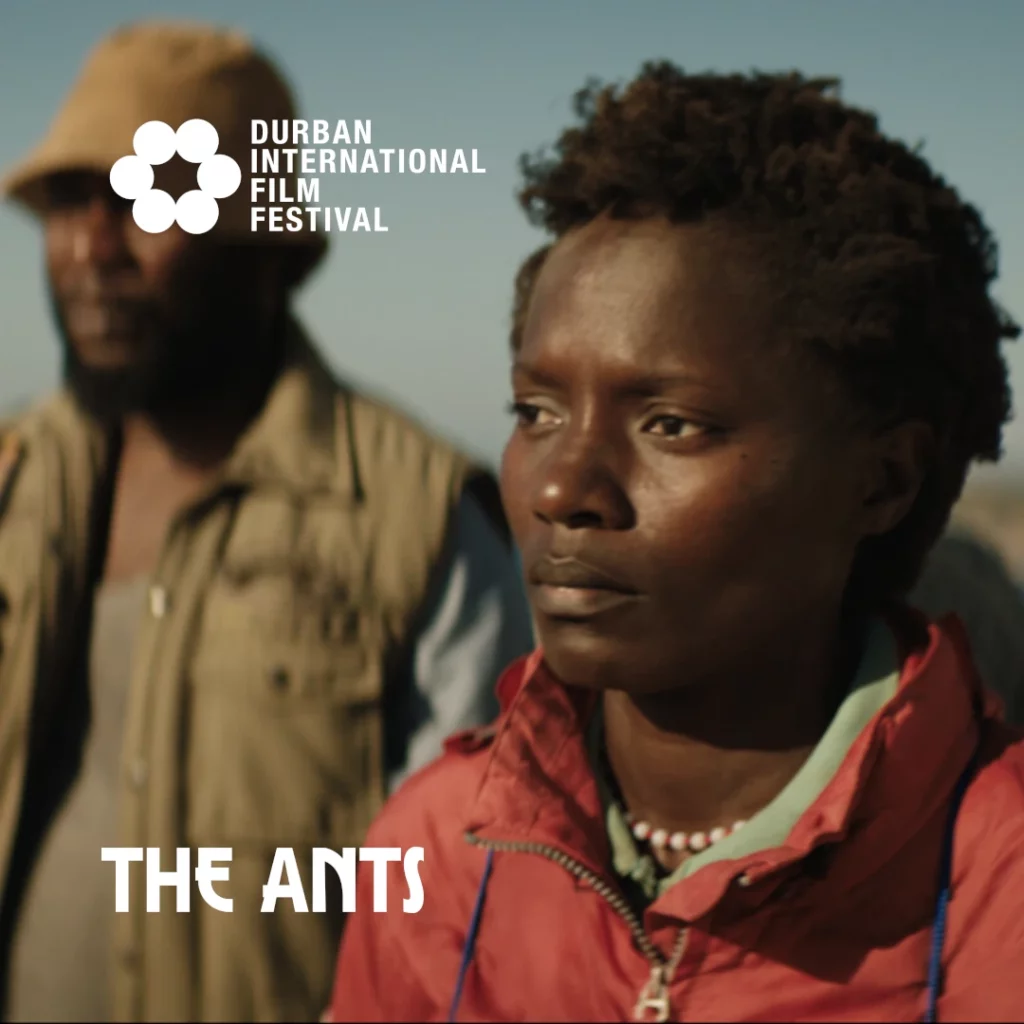Directed by Yassine Fennane
In The Ants, Moroccan filmmaker Yassine Fennane weaves three quietly devastating stories into a single, haunting reflection on migration, dignity, and the quiet ambitions that carry us forward, even when the path is crumbling beneath our feet.
This film begins quietly, even cautiously, it doesn’t grab you by the collar. But by the time you’re deep into the second story, you’re hooked. The pacing, like the characters, is patient but determined. And then the final chapter arrives, not loud, but loaded. If you’ve watched Goodbye Julia, you’ll recognize the slow convergence of lives, the moral cost of survival, the delicate tension of women trying to make dignified choices in a world that rarely lets them.
Félicité, a Sub-Saharan migrant, is grieving the loss of her friend Sandrine. Determined to give her a proper burial, she seeks work at an agency that promises opportunity but profits off desperation. At that agency, works a man by the name Hamid, a recruiter whose own dream of climbing out of working-class life slowly unravels. Meanwhile, Kenza, a wealthy, visibly pregnant woman, is desperate to return to work, despite her husband’s resistance. In the epilogue, all three stories converge: Kenza hires Félicité through Hamid’s agency. The loop closes, and we see what Fennane has been building toward all along.
Yassine Fennane, born in Rabat and known for his work in shorts and Moroccan television, brings an editor’s precision and a poet’s restraint. His background in crafting tightly knit narratives is felt in the careful calibration of each scene, each line, each reveal. The fact that The Ants stretches across three stories without ever losing its center is a testament to Fennane’s ability to tell deeply human stories with minimal noise.
His storytelling is deceptively precise. The Ants is cinematic in the truest sense: the camera lingers just long enough for you to feel, the lighting is tender without being romantic, and the cinematography holds each character with a certain type of familiarity. The use of French and Arabic grounds the film in lived experience, and the music subtly lifts the emotional weight without tipping into melodrama.
But what truly sets the film apart are the quotes, scattered mid-scene, unexpected, poetic. All about ants. Observational. Ominous. Sometimes prophetic. They give the film a quiet philosophical backbone, a running commentary on human behaviour from the point of view of different cultures: Arabian, Indian.
The Ants doesn’t offer closure in the traditional sense. Instead, it offers a mirror: to the systems that trap us, to the dreams that quietly keep us alive, and to the ways our lives intersect sometimes in the smallest, most invisible ways or perhaps in ways that enable us fulfil our desires and keep our promises.
Catch the film at DIFF: https://ccadiff.ukzn.ac.za/diff46/the-ants/
Screening Schedule:
21 Jul 19:30 Suncoast 6
27 Jul 14:00 Pavilion 12
This review emanates from the Talent Press programme, an initiative of Talents Durban in collaboration with the Durban FilmMart Institute and FIPRESCI. The opinions expressed in this article are those of the author (Gloria Nkatha) and cannot be considered as constituting an official position of the organisers.

